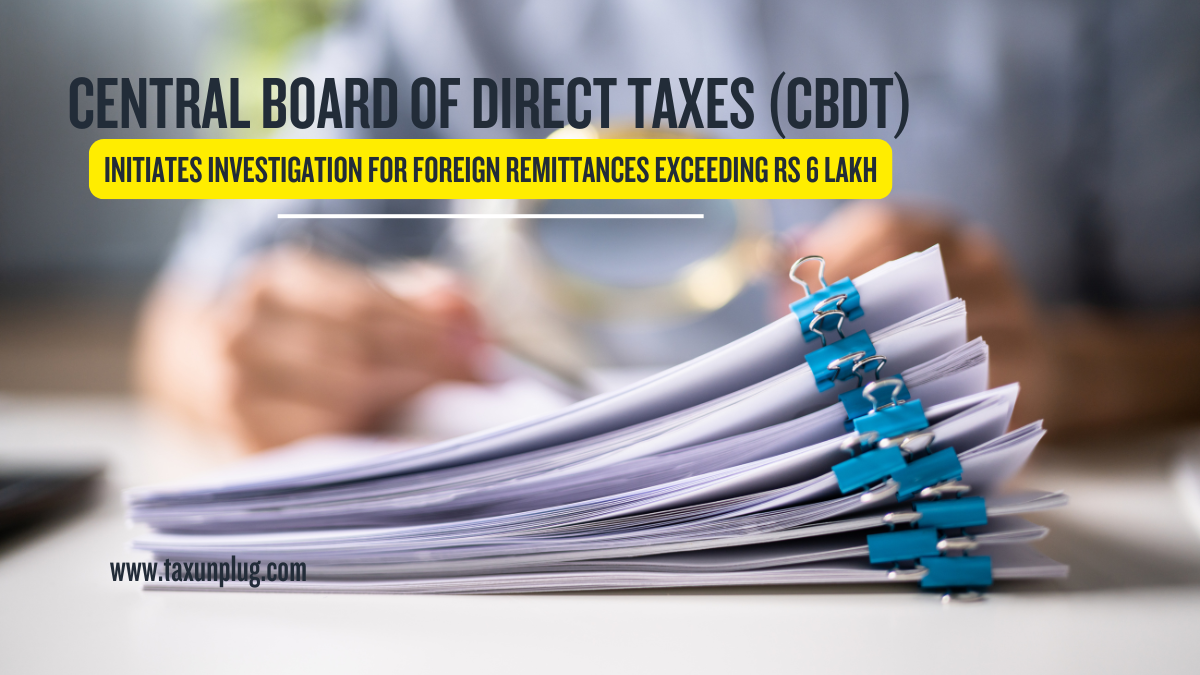Central Board of Direct Taxes (CBDT)
The Central Board of Direct Taxes (CBDT), the principal authority responsible for the administration of direct tax collection in India, has allegedly initiated a comprehensive inquiry into substantial foreign remittances surpassing ₹6 lakh. According to reports, this initiative seeks to uncover inconsistencies between the incomes reported by taxpayers and the actual sums transferred abroad.
The CBDT is intensifying its efforts to identify discrepancies between the information provided by taxpayers and the data pertaining to foreign remittances. This examination arises from increasing apprehensions regarding undisclosed incomes and unreported foreign transactions, which may result in tax evasion.
This study highlights the increased Tax Collected at Source (TCS) rates established by the Finance Ministry for remittances exceeding ₹7 lakh. As of October 1, 2023, the TCS rate for these transactions has been elevated to 20%, a significant rise from the former rate of 5%. Although this adjustment was originally set to take effect on July 1, 2023, its implementation was postponed to October 1 due to public opposition.
Specific categories, such as medical costs and educational expenses, are not subject to the elevated TCS rate. According to the Reserve Bank of India’s Liberalised Remittance Scheme (LRS), resident individuals are permitted to remit a maximum of $250,000 each financial year for allowable transactions. Nevertheless, the rise in TCS is intended to prevent misuse and guarantee that substantial remittances are taxed correctly.
Tax Collected at Source (TCS) is an additional tax levied by the seller at the time of a sale, which is then deposited with the tax authorities. While TCS can be adjusted against the taxpayer’s overall tax liability when filing an income tax return, any excess amount can be claimed as a refund.
The comprehensive inquiry conducted by the CBDT regarding foreign remittances demonstrates the government’s dedication to enhancing tax compliance and curbing evasion. Taxpayers involved in substantial foreign transactions must guarantee complete transparency to mitigate the risk of penalties and increased scrutiny.
“The site is for information purposes only and does not provide legal advice of any sort. Viewing this site, receipt of information contained on this site, or the transmission of information from or to this site does not constitute an attorney-client relationship. The information on this site is not intended to be a substitute for professional advice.”

